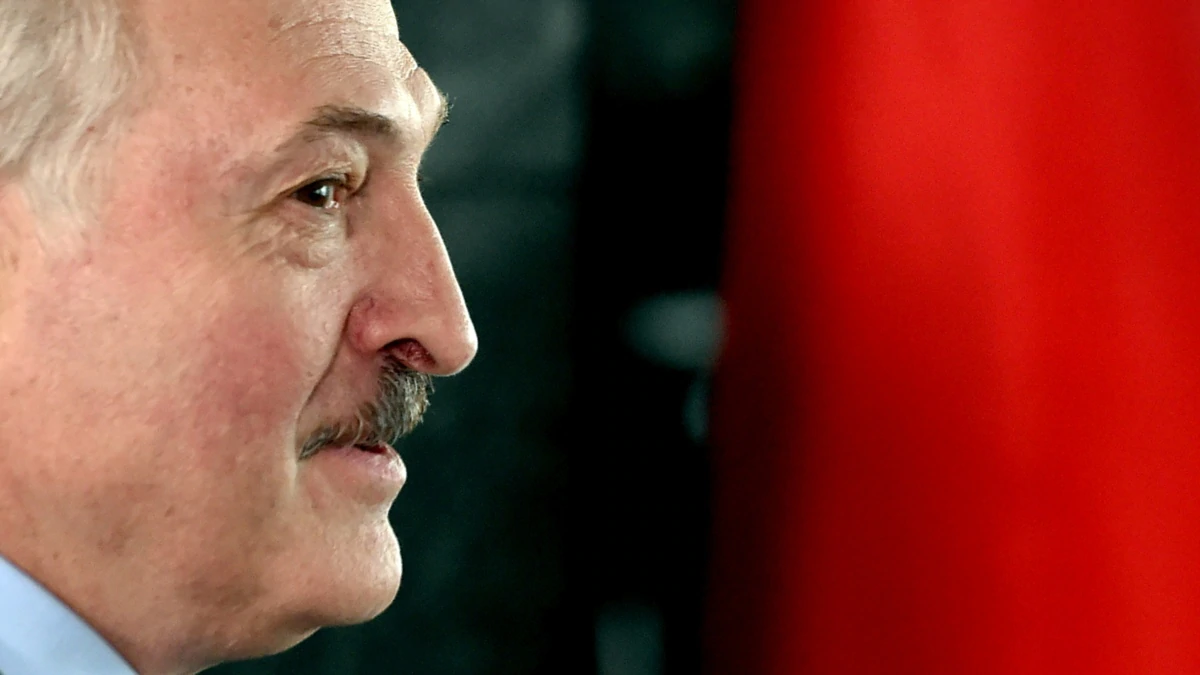
A group of European Union states with diplomatic representatives in Belarus, together with the bloc’s delegation in Minsk, will recommend several paths for the 27-member bloc to take, including expanding the scope of sanctions against authoritarian ruler Alyaksandr Lukashenka for hijacking an election last year and then violently cracking down on protesters demanding that he step down.
In a paper seen by RFE/RL, the group assesses the current political situation in the country and provides suggestions on policy options, including sanctions. The paper, titled “EU Heads Of Mission Report: February 2021 Review Of The EU Restrictive Measures Against Belarus,” is set to be discussed in Brussels in the coming weeks. It is not guaranteed that all of the recommendations will be taken into account.
The paper spells out four different paths that Brussels can take when it comes to its eastern neighbor: “Wait and See,” “A Pragmatic Equi-Distant,” “Decisive Continued Downgrading of Relations,” and “A Near Total Freeze of Relations.”
The EU has already called the presidential election of 9 August “neither free nor fair” and stated that Lukashenka “lacks any democratic legitimacy.”
In the wake of the crackdown of protestors that followed the vote, which saw most of the Belarusian opposition move into exile, the EU imposed visa bans and asset freezes on 88 individuals and seven entities, including Lukashenka and his son in three separate sanction rounds at the end of 2020. This wait–and-see path would, according to the document, also continue and reflect the current “gradual approach to sanctions.”
The second option would entail issues such as “silent diplomacy, a high-level mission to Minsk/invitation to a neutral venue, keeping the mediation offer on the table, agreeing to talk to the regime and entering into a kind of dialogue at the OSCE [Organization for Security and Cooperation in Europe], entering into high level negotiations with Russia and the U.S. to increase outside pressure, offer an EU advisory mission/ EU special representative for Belarus.”
Among other things, the third path would include a downgrading of relations with more individuals and entities sanctioned, scaled-down diplomatic relations but also “supporting the initiation of criminal and other cases under national laws in EU member states, against perpetrators of torture and inhumane treatment.”
The fourth and harshest option would be a near-total freeze of relations, meaning the severance of diplomatic relations, including the withdrawal of EU member states’ ambassadors, a full sanctions regime hitting various industrial sectors, a ban on the sale of Eurobonds, and the possible alignment of the sanctions regime with that imposed on Russia. A moratorium on Belarus’s participation in Eastern Partnership structures and a formal recognition of a government in exile would also be on the cards.
The document also notes a number of things that Belarusian authorities have to do in order to resume what is called “a meaningful dialogue with the EU,” including the cessation of “all repression and abuse of the human rights of persons engaged in the pro-democracy movement, independent media and representatives of the civil society.”
Lukashenka, who has ruled Belarus since 1994, has refused to negotiate with the opposition. Thousands of protesters — including members of the free press — have been jailed for taking to the streets to demand fresh elections.
The bloc is also demanding that Minsk should release, rehabilitate, and financially compensate political prisoners, ensure free and fair elections under OSCE observation, and “provide safe conditions for the return of those in political and forced exile.”
The heads of missions suggest that Brussels should consider an expansion of the scope of sanctions if those EU key demands are not met.
Among the people who should be targeted with sanctions are top officials of the regime, including all members of the Security Council and their immediate relatives, the heads of regional administrations, and so-called “presidential aides” in the regions, as well as “rank-and-file executors of violence among the authorities such as police and special police officers like the KGB and OMON special police.”
Asset freezes on companies should include “state-owned enterprises contributing to the financing of the regime such as oil refining, potassium production, and chemical production,” financial institutions such as all state banks and private ones like the Minsk Transit Bank, companies in the machinery sector such as for example BelAz and the Minsk Tractor Works and the National Railways.
If the situation deteriorates further, it is suggested that sectoral sanctions could be enacted and include the prohibition of EU-domiciled or affiliated companies such as MasterCard, VISA, and Swift to provide services or supply goods from Belarusian companies dealing with energy and raw materials, as well as all state-owned companies and those belonging to individuals on the EU sanctions list.